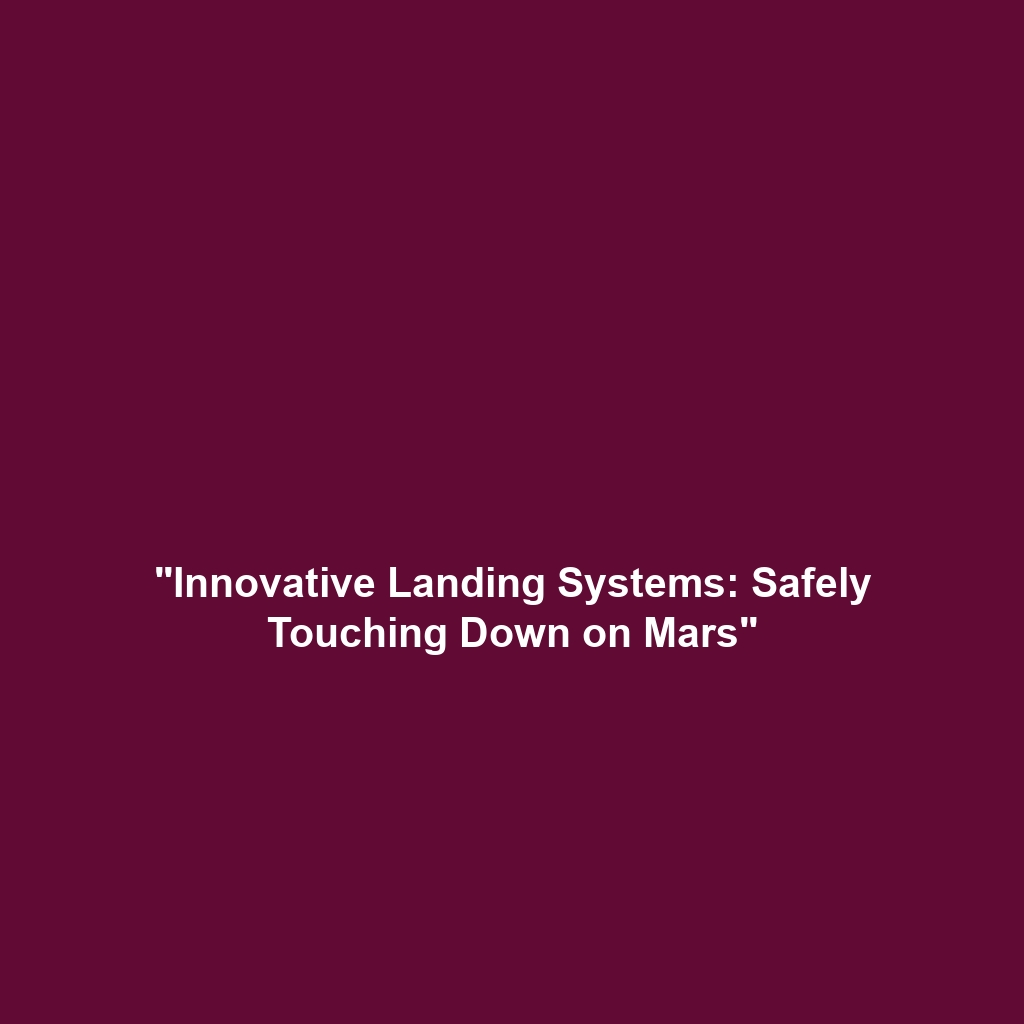NASA’s Mars Mission Plans: Upcoming Human Mars Missions
Introduction
Navigating the vast expanse of space, NASA is on the brink of a monumental achievement: sending humans to Mars. This ambitious endeavor is integral to the broader vision of colonizing Mars, shaping our understanding of astrobiology, planetary science, and the survival of humanity beyond Earth. As scientists and engineers work tirelessly to develop the technology and infrastructure for these missions, the significance of NASA’s Mars Mission Plans extends beyond mere exploration; it opens new avenues for interplanetary living and resource utilization. This article delves into the key concepts, applications, challenges, and future research developments surrounding NASA’s upcoming human Mars missions.
Key Concepts
NASA’s Mars Mission Plans focus on several key principles essential for the success of human exploration and colonization:
- Human Adaptation: Understanding how humans can survive and thrive in the harsh Martian environment.
- Resource Utilization: Developing technologies for extracting water and producing fuel from Martian resources (ISRU – In-Situ Resource Utilization).
- Transportation Innovations: Advancing spacecraft technology to ensure safe travel to and from Mars.
- Scientific Research: Conducting experiments to investigate Mars’ geology, atmosphere, and potential for life.
These concepts serve as the foundation for NASA’s mission to colonize Mars, emphasizing the necessity of scientific rigor and interdisciplinary collaboration.
Applications and Real-World Uses
NASA’s plans for human Mars missions will have profound implications, showcasing various applications within the context of colonizing Mars:
- How NASA’s Mars Mission Plans are used in colonization efforts: The development of life support systems based on Mars’ unique environment.
- Psychological Studies: Research on astronaut mental health during prolonged missions informs future living conditions on Mars.
- Robotic Precursor Missions: Unmanned vehicles meticulously mapping and analyzing Martian terrain set the stage for human arrival.
These initiatives will create a critical framework for sustaining life on Mars, transforming theoretical concepts into practical realities.
Current Challenges
The pursuit of colonizing Mars through NASA’s human Mars missions faces several challenges, including:
- Long-duration space travel leads to physical and psychological health risks for astronauts.
- The need for robust life support systems to provide food, water, and oxygen.
- Technological hurdles in developing reliable transportation vehicles for the journey.
- Potential contamination of Martian ecosystems by Earth organisms.
Addressing these challenges is paramount to ensuring the feasibility and safety of future missions.
Future Research and Innovations
Looking ahead, ongoing innovations and research are crucial for NASA’s Mars mission plans and the future of colonizing Mars:
- Next-Gen Spacecraft: Development of the Space Launch System (SLS) and Orion spacecraft enhances transport capabilities.
- Habitat Technologies: Research into constructing sustainable habitats utilizing Martian materials for long-term human presence.
- Life Support Systems: Advancements in closed-loop life support systems aim to recycle air and water efficiently.
Such innovations will not only support missions but also pave the way for a permanent human presence on Mars.
Conclusion
NASA’s Mars Mission Plans represent a significant leap toward colonizing Mars, intertwining innovation, scientific inquiry, and the spirit of discovery. As we stand on the precipice of human exploration beyond Earth, the insights gained from these missions will shape our understanding of life in the universe. To stay updated on this exciting venture, explore related topics on Mars colonization, such as the Applications of ISRU in Mars Colonization and Technological Advancements in Space Travel.

